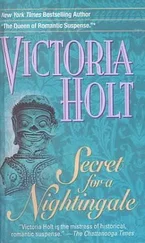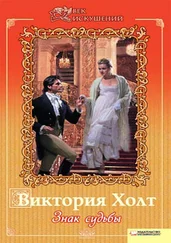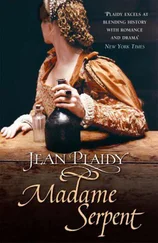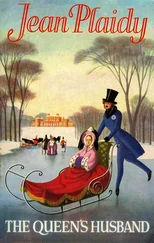A girl like that in the house! he mused. Why, if I do not… then someone else will!
He sent for French Paris whom he had kept in his service even though he knew the man stole from him and had been in that half-jesting, half-earnest plot to poison him.
“Who is the girl in the sewing room?” he asked.
“The girl, my lord? You would mean Bessie Crawford, for sure.”
“How are you sure, man?”
” Tis the only girl in the sewing room that would interest your lordship. Why, I’ve laid a wager with Gabriel that you would take her before the week was out.”
“You insolent knaves!” grinned Bothwell. “And when is this week out?”
“Sir, it runs out this very day.”
Bothwell slapped the man’s shoulder so hard that French Paris’s knees gave way.
“We cannot have that,” said Bothwell.
Paris sniggered. “Her ladyship, in turning out the rooms, my lord, has discarded furniture which she had sent down to the cellars. It well-nigh killed us. An old couch, my lord, there was among other articles. ’Tis there now… old… shabby… having been in use since before my lady’s coming, sir… but still a couch….”
“Send the girl down to the cellar to get wine,” said the Earl.
“Yes, my lord. And lock the door and bring the key to you?”
“How well you follow my plans, man!”
“My lord, there have been other times.”
“Do it then. I’d like you to win your wager with sly Gabriel.”
Paris went off chuckling.
BESSIE HAD HEARD much of the Earl and she never tired of listening to stories of him. They whispered of him that no woman was safe if he fancied her.
“Keep your eyes on your work,” said elderly Nan, who sat stitching beside her when the Earl passed through the room. “Don’t go casting them in that direction, my girl.”
Bessie did not reply. She sat still, shivering with excitement.
When she left the sewing room that afternoon French Paris was waiting for her.
“You’re to go down to the cellar,” he said. “You’re to bring up a flagon of red wine.”
“Where to?” asked Bessie.
“To me in the kitchen.”
Bessie went down the stone stairs to the cellar, taking the candle which Paris had thrust into her hand.
“Watch your step,” he called after her.
Bessie did not like the cellar very much. It was dark and damp and there were cobwebs which touched her face as she groped her way forward.
Suddenly she heard the door shut behind her and the key turn in the lock.
“Master Paris!” she called shrilly. “Master Paris!”
She went up the stairs and tried the door. She was right. It had been locked. It was a silly trick, she supposed. Paris was teasing her. She looked around her. She must not be frightened. It was just a joke; she must remember that. The servants liked to play jokes on one another. Well, she would do as she had been bidden. She would get the flask of wine and then, if he had not unlocked the door by then, she would bang on it and call for help.
She went to where the flagons were stored, and picked up one; but as she turned toward the door she saw that it was open. She laughed with relief.
“A silly trick, Master Paris,” she said. “Don’t think to frighten me”
But it was not Master Paris who had turned and was locking the door behind him. Bessie’s heart raced as the tall figure of the Earl came toward her.
She dropped the flagon as she heard him laugh.
“My… my lord …,” she stammered.
Then she felt those strong arms seize her.
“I … I do not understand, my lord.”
“You cannot deceive me, Bessie,” he said. “You understand very well indeed, as you did in the sewing room, did you not?”
“No, my lord, I—”
“No!” he cried. “Then I shall have to make you.”
With that he picked her up as though she herself were no heavier than the smallest flagon of wine. He put her on the couch. Then Bessie began to understand.
THE QUEEN was humiliated beyond endurance.
She and her husband had been entertained at the house of one of the rich burghers of the city. Darnley no longer attempted to hide from her the fact that he was a heavy drinker and, worse still, a drinker who could not carry his drink.
He no longer bothered to disguise his true nature. She had to agree with others that he was vain, dissolute and despicable. He would pick quarrels with those who dared not stand up to him; he brawled in the streets, accosting women, demanding that his companions did likewise; he boasted of his mastery over the Queen who, he asserted, was so madly in love with him that she would deny him nothing.
Mary watched him, and as she did so her feelings toward him were first lacerated with humiliation and then began to grow colder.
She had begged him this evening to drink less. He had shouted at her before the company that it was no matter for her to decide what he should drink. She should remember that he was her lawful husband. He knew how to punish her, he said with a leer, if she did not treat him with due respect.
This was more than Mary could endure.
She bade good-bye to her host, and, in tears of humiliation and rage, left the house.
Darnley stayed on to drink himself unconscious and be carried back to Holyroodhouse by his attendants and friends.
She was in her apartment when one of them came to tell her that he had been brought back to the palace and put to bed.
She nodded coldly.
There were no more tears; she was no longer heartbroken, for she had made a strange discovery: she had ceased to care for Darnley.
She did not understand herself. That raging passion which had swept over her had turned completely cold. It had died as suddenly as it had flared. She could not understand how she could have imagined herself in love with the dissolute youth. She began to see him in a new light. The blue eyes which she had thought so beautiful now seemed inane, the soft lips weak and foolish. She had begun to suspect that what she had so desperately needed was not Darnley’s love but a lover. She was beginning to know herself.
A great sadness came to her. She had dreamed of the perfect union, and she was discovering most bitter disillusion. Darnley’s boyish naïveté was assumed; he was hideously experienced; he was full of vice; he had practiced every sort of depravity. How he must have laughed at her for falling such an easy victim to his youthful charm.
There was one other factor—a most important one—which had caused her to decide on the measures she would take: she was pregnant.
Perhaps her pregnancy made her less eager for his embraces; perhaps the slackening of desire had given her a chance to see him as he really was. No matter. She saw; and she had made up her mind.
She rose and sent a page to David Rizzio with a message that she wished to see him at once. It was midnight, but he had not retired. Early hours were never kept at Holyroodhouse.
“David,” she said, “I have something secret to tell you. I wish no one else to know it. I hate Darnley.”
“Madam!”
“Yes, it is true. It has suddenly come to me. I did not really love him. There had been so much talk of marriages, and they never materialized. I suppose I wanted a lover and he was there. He seemed more eligible than anyone within reach. Now I think him loathly. Oh, David, you wonder. I have been so doting, have I not? You wonder if I really mean what I say.”
“Madam, his behavior tonight was disgraceful.”
“His behavior every night is disgraceful. He was quite insincere before the wedding. Now we see him as he really is—an arrogant upstart, a drunkard and a lecher. Let us face the truth, David. How has he behaved toward you? Do not speak. I will tell you. He has been insufferable, although when he first came here, knowing the influence you had with me, he made himself most agreeable. That is the truth, is it not, David?”
Читать дальше












